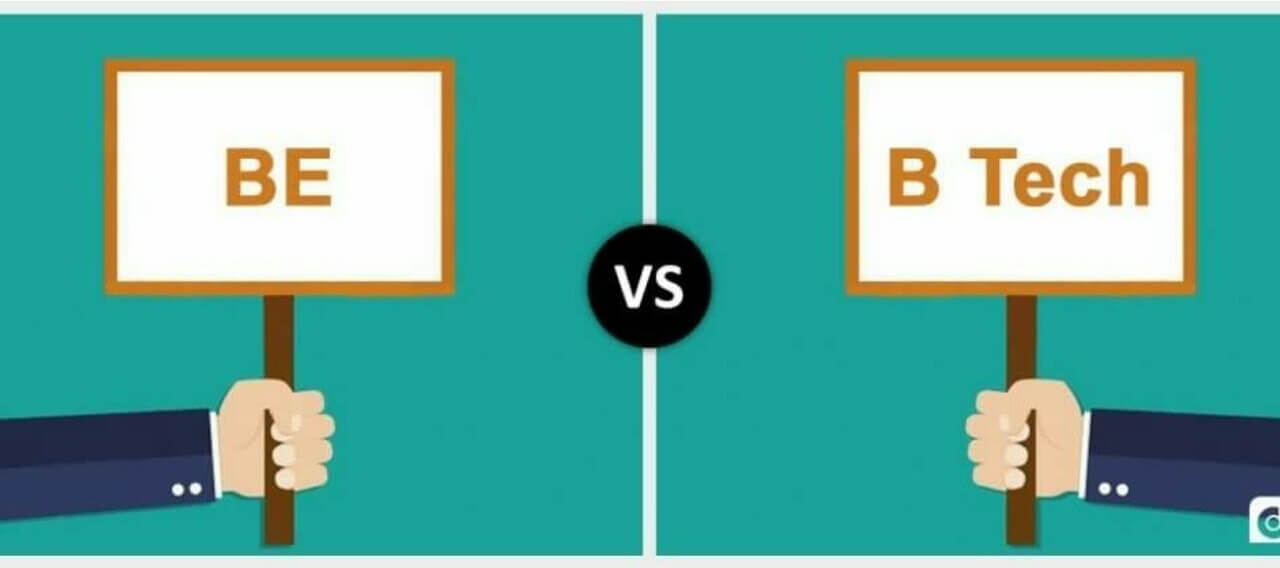The National Council of Advanced Economic Research confirmed through surveys that engineering is conceivably the most popularly followed undergraduate degree in India.
The two varieties of engineering courses are B.Tech (Bachelor of Technology) and B.E(Bachelor of Engineering). The most noticeable doubt that every engineering course applicant meets first is the difference between B.E and B.Tech. To explain the complication, one must comprehend that both B.E. and B.Tech have slightly the same significance nowadays. In the engineering profession, both these courses are equally valuable and where and how you pursue them is the key to the accomplishment of your career.
Introduction
These degrees appear analogous. But there are unique differences between B.E and B.Tech. The primary difference between B.E and B.Tech, in terms of study, is the fact that B.E degree focuses more on the theoretical proficiency that is applied to assemble gadgets and appliances in the field of applied science and technology, while B. Tech underscores more on practical application.
The various specializations offered by both the programs include Computer Science and Engineering, Mechanical Engineering(CSE), Electrical and Electronics Engineering(EEE), Electronics and Communications Engineering(ECE), Civil Engineering, Instrumentation and Control Engineering(ICE), Information Technology(IT), Petroleum Engineering, Chemical Engineering, Metallurgical Engineering, Aeronautical engineering, Aerospace Engineering, Production Engineering, Biotechnology, Biochemical Engineering, Biomedical Engineering, and Agricultural Engineering.
Only the colleges or universities that are approved by UGC, AICTE, and NBA can provide valid degrees for the B.E and B.Tech. Such approved degrees are only considered as job qualifiers in both the government and private sectors.
Also Read:
Key Differences between B.Tech and B.E
| B.Tech
1)Done directly after a student completes his/her 10+2 Science in Physics, Chemistry, and Mathematics. After a student’s 12th exam, the candidate has to clear some state or national level engineering entrance examination through which he/she will get admission into a college or university that provides a technology degree.
2)B. Tech is skill-oriented, which lends more priority to practicals.
3)Internships and industrial visits are a crucial part of B.Tech courses. More experience is required for placements in most companies. |
B.E
1)Done after a student completes his/her 10+2. The candidate has to clear any state or national level engineering entrance through which he or she will get admission into an engineering college or university. 2)B.E. is considered a knowledge-oriented course where more priority is given on the academic part of the curriculum. 3)Industrial visits and internships may be (not necessarily) an essential part of the syllabus. |
Similarities between B.E and B.Tech
- AICTE has illustrated that it does not consider the two courses as different and awards identical credit to both.
- Both the degrees have equal future and scope.
- Both the degrees complete in 4 years(i.e. 8 semesters).
- The subjects and the course structure followed every semester is more or less very similar for both the courses. The syllabus for both the courses is formed by the All India Council for Technical Education (AICTE), University Grants Commission of India(UGC), and National Board of Accreditation (NBA).
- If there are vacancies for a B.E degree holder in a company, then a B.Tech holder can apply for it. The situation is feasible the other way around too.
- A 12th standard student needs a minimum of 50% in Physics, Chemistry, and Mathematics to be eligible to pursue both the courses.
Entrance examinations
It is mandatory for the students at present, to qualify in any state/national level entrance examination for pursuing any engineering course. There are many entrance examinations for getting entry into B.E/B. Tech. courses that are offered by different educational institutes. The entrance examinations can

Which course is better?
The students must choose any one of these courses depending upon their interest, academic stability, job interests, and their plans. Sometimes a preferred university only provides a B.E degree or only a B.Tech degree. In that case, the student must choose according to his/her preferred college.
If a student wishes to take a research fellowship in the future, then he/she may go for a B.E degree because it focuses mainly on academic clarity and theoretical knowledge.
Similarly, If a student aspires to join a field that is employed in the manufacturing of hardware, then the B.E. degree is more desirable for him/her. However, if a person hopes to join a field that compels to make hardware more productive, profitable, or attractive by enhancing them, then the B.Tech degree is more reasonable.
There is less difference between B.E and B.Tech than likenesses.
